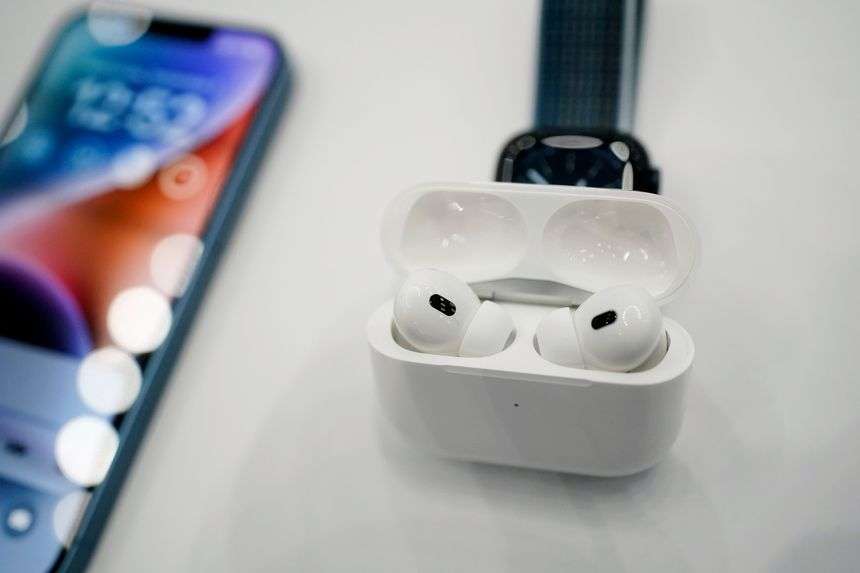
A new study has shown that a $249 set of Apple Inc. earphones may help some persons hear properly as well as serve as hearing aids.
The study, which was published in the journal iScience on Tuesday, 15 November, 2022, discovered that a sound amplification function on Apple’s AirPods Pro enable individuals with mild-to-moderate hearing loss regain normal hearing.
The study’s conclusions were based on a comparison of two types of Apple headphones to two hearing aids from other vendors.
“They won’t replace hearing aids but it’s a good way for people to experience what the world would be like if they could get some help, an upgrade for their hearing,” said Yen-Fu Cheng, an ear, nose and throat specialist at Taipei Veterans General Hospital in Taiwan, who co-wrote the study.
Dr Cheng and his colleagues discovered that Apple’s $129 AirPods 2 could not properly treat hearing loss.
According to the study, the AirPods Pro did not fulfill FDA hearing aid criteria. However, they amplified sound as well as certain less-advanced gadgets that help people hear better, according to the researchers.
Apple has stated that it has not promoted AirPods as hearing aids, but has incorporated some functions to assist persons with hearing loss. According to Apple, one function, Live Listen, enables AirPods owners to utilize another Apple device, such as an iPhone or iPad, to help tune out background noise and better hear conversations. Users may also adjust the sound on their iPhones, AirPods, and other devices by uploading hearing-test results.
As part of the study, 21 adults with mild-to-moderate hearing loss were given hearing tests while wearing Apple AirPods with the Live Listen feature activated. The participants also took the test while wearing a basic pair of hearing aids and a premium set. The researchers said that the users reported the best experience with the premium hearing aid, a $10,000 model. But the AirPods Pro performed almost as well as the hearing aids. AirPods 2 performed worse, the researchers said.
In a sound and clarity test used to evaluate the performance of some hearing assistants, the AirPods Pro met established standards in four out of five categories, while the AirPods 2 met standards for two. The AirPods Pro surpassed the ideal threshold for internal noise levels, which could make it more difficult for users to distinguish softer sounds and speech, said study co-author Ying-Hui Lai, an associate professor of Biomedical Engineering at Taiwan’s National Yang Ming Chiao Tung University.
“There’s much room for improvement before these devices can be used as over-the-counter hearing aids,” Dr Lai said.
Using earphones such as the AirPods Pro as hearing assistants won’t be appropriate for every patient but they could encourage some to find a more permanent solution for hearing loss, Dr Charles Limb, a professor and chief of Ontology at the University of California, San Francisco said.
“I’ve had a number of patients prior to this study tell me that they already use their AirPods as quick and dirty hearing aids. It seems to work really well,” Limb said.
Limitations of using AirPods to improve hearing include their battery life, hearing-loss experts said. Hearing aids and other hearing assistants use internal microphones to pick up environmental sounds, unlike AirPods which require a phone or other device to do so, said Michele DiStefano, director of the Shelley and Steven Einhorn Audiology Center at the Center for Hearing and Communication in New York.










